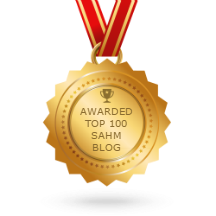In 1997, the Traditional and Alternative Medicine Act (TAMA) was signed into law by then-President Fidel V. Ramos. This legislation was a significant milestone in the promotion of traditional and alternative healthcare modalities in the Philippines. The act aimed to integrate these practices into the national healthcare system through scientific research and product development. Since the enactment of TAMA, the Department of Health (DOH) has endorsed ten medicinal plants due to their proven health benefits. These plants are lagundi (Vitex negundo), yerba buena (Mentha cordifolia Opiz), sambong (Blumea balsamifera), tsaang gubat (Carmona retusa), ampalaya (Momordica charantia), niyug-niyogan (Quisqualis indica), bayabas (Psidium guajava), akapulko (Cassia alata), ulasimang bato (Peperomia pellucida), and bawang (Allium sativum).
Among these, one of the more popular traditional medicines is the guava, known scientifically as Psidium guajava and locally as "bayabas." Guava has been used for generations and is well-regarded by arbolaryos (herbalists) and practitioners of natural medicine. The leaves of the guava tree are particularly valued for their medicinal properties. Traditionally, boiled, chopped, or pounded guava leaves have been used as an antiseptic for wound disinfection. The antiseptic properties of guava leaves help clean wounds, removing bacteria and germs, thus preventing complications and infections.
Furthermore, guava leaves can be used to address oral health issues such as tooth decay and gum infections. A mouthwash made from boiled guava leaves is effective in maintaining oral hygiene. For skin care, guava leaf extract is beneficial for treating various skin conditions. To accelerate healing and prevent infections, a decoction of guava leaves can be used as a soak, wash, or bath rinse for wounds, prickly heat, or fungal infections like athlete’s foot.
However, with the urbanization of many areas, finding guava trees and their leaves has become increasingly challenging. Fortunately, the market has responded to this need by developing commercial products that incorporate guava leaf extracts. These products offer the medicinal benefits of guava leaves in a convenient form. Typically available as sachets, they can be mixed with warm water to create a healing solution. Besides guava, these products often contain other natural extracts known for their skin care benefits. Ingredients such as eucalyptus (for its cooling effect), lavender (an antiseptic and aromatherapy agent), lemon grass (anti-microbial and fungicidal), mint (to soothe itchy skin), and rose root (an anti-oxidant to prevent premature wrinkles) are commonly included.
The integration of these herbal ingredients into commercially available products represents a modern take on traditional practices. These products provide an effective and convenient solution for those seeking natural remedies without the hassle of sourcing raw materials. The effectiveness of these herbal ingredients dates back to the heydays of the albularyo, now conveniently found in a bottle of natural skin wash. This modern adaptation ensures that the wisdom of traditional medicine continues to benefit people in contemporary settings, maintaining the link between past practices and present-day health solutions.











.png)




 />
/>





.png)


No comments:
Post a Comment